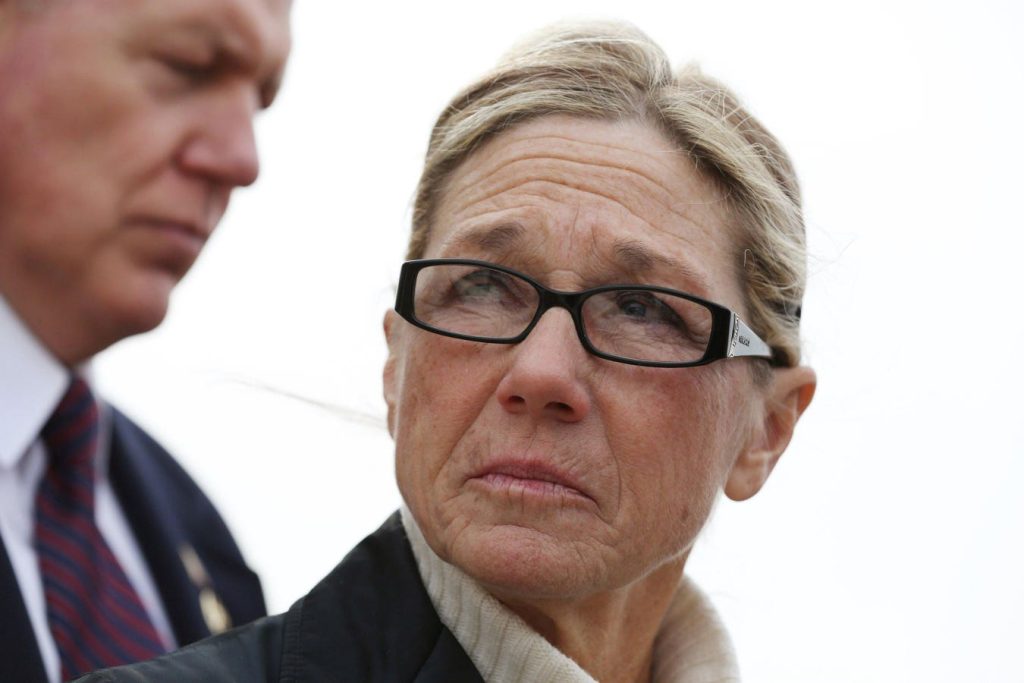Rita Crundwell’s embezzlement of $53.7 million from the city of Dixon, Illinois, over two decades stands as a stark example of municipal fraud. Crundwell, the city’s comptroller and treasurer, exploited her position to fund a lavish lifestyle centered around her passion for breeding American Quarter Horses. She achieved this by creating a fictitious city account, funneling millions annually while Dixon’s legitimate budget struggled, forcing cuts to essential services. Despite annual audits by Clifton Gunderson (now CliftonLarsonAllen), the fraud remained undetected until 2012 when the acting comptroller discovered the sham account during Crundwell’s absence. This discovery led to an FBI investigation and Crundwell’s subsequent arrest. The scale of her theft, considered the largest public funds theft in Illinois history at the time, shocked the community and drew national attention. The ensuing legal proceedings resulted in the liquidation of Crundwell’s ill-gotten assets, including horses, vehicles, and property, with the U.S. Marshals Service recovering over $12.38 million.
Crundwell’s guilty plea to wire fraud and money laundering in 2012 resulted in a 19.5-year federal prison sentence, requiring her to serve at least 85% of the term. Notably, she also faced 60 state theft charges, considered a “backup” if the federal case faltered, but these were dropped after her federal conviction. While federal and state sentences typically run concurrently, a federal commutation wouldn’t impact a state sentence. Due to provisions within the CARES Act, Crundwell was released to home confinement in mid-2021, significantly reducing her time in physical incarceration. This early release, driven by the pandemic’s impact on the prison system, surprised many, including those directly affected by her crimes in Dixon. Initially, her release was viewed as a necessary measure to mitigate Covid-19 spread within prisons, but it sparked debate about the appropriateness of such leniency given the magnitude of her offense.
The news of Crundwell’s commutation as part of President Biden’s mass clemency grant in 2024 reignited the controversy surrounding her case. The decision, part of a larger wave of commutations and pardons focused on non-violent offenders, was met with shock and anger in Dixon. Mayor Glen S. Hughes and City Manager Danny Langloss, Jr., expressed their outrage, calling it a “travesty of justice” and a “slap in the face” to the community. While acknowledging the emotional impact of the news, they emphasized the city’s recovery and its determination to move forward. The commutation also raised eyebrows beyond Dixon, with Kelly Richmond Pope, the director of “All the Queen’s Horses,” a documentary about the Crundwell case, expressing surprise and questioning whether Biden was fully aware of the historical significance of Crundwell’s fraud. The commutation underscored the complexities of the justice system and sparked conversations about accountability, rehabilitation, and the appropriate use of executive clemency.
The commutation of Crundwell’s sentence reflects the broader context of the CARES Act and the debate surrounding home confinement for certain inmates. Passed under President Trump, the CARES Act expanded the eligibility for home confinement to reduce prison populations and mitigate Covid-19 transmission. This provision allowed non-violent offenders, particularly those nearing the end of their sentences, to serve their remaining time at home. Crundwell, who met the criteria for home confinement under the CARES Act, was among thousands of inmates released from prison to complete their sentences under supervision. While this move was lauded by some as a necessary step to protect vulnerable inmates from a deadly virus, others criticized it for potentially releasing dangerous individuals back into communities. Crundwell’s case brought this debate into sharper focus given the significant financial harm she caused.
President Biden’s mass clemency grant, which included Crundwell’s commutation, aimed to address the ongoing impact of the CARES Act and further facilitate the reintegration of individuals who had successfully transitioned to home confinement. The White House emphasized that these commutations were reserved for individuals who had served at least a year of their sentences at home, demonstrated a commitment to rehabilitation, and posed a low risk to public safety. However, the inclusion of Crundwell, despite the significant financial harm caused by her crimes, raised questions about the scope and purpose of clemency. Critics argued that such leniency could send a mixed message about accountability for white-collar crimes, while supporters maintained that Crundwell had served a substantial portion of her sentence and met the criteria for commutation.
The differing perspectives on Crundwell’s commutation highlight the ongoing debate over the balance between punishment, rehabilitation, and mercy within the criminal justice system. While some argue that the primary focus should be on holding offenders accountable for their actions, others advocate for a more restorative approach that emphasizes reintegration and second chances. Crundwell’s case, with its significant financial impact and the emotions it stirred within the community she wronged, brought these competing philosophies into stark contrast. The use of clemency, particularly in cases involving large-scale financial crimes, remains a sensitive issue with no easy answers, underscoring the complexities of achieving justice and fostering a sense of fairness within society.

